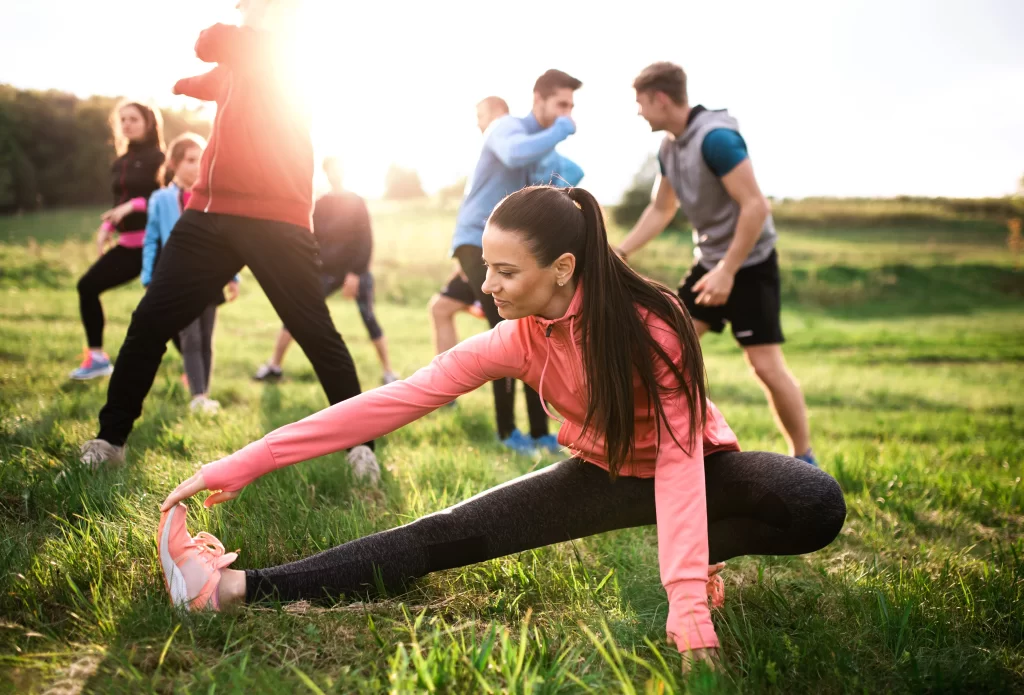For individuals dealing with mental health challenges, incorporating exercise into their routine can be transformative. Culturally inclusive fitness not only focuses on physical well-being but also acknowledges and respects diverse backgrounds. This article explores the best exercises for mental health, the benefits of physical activity on mental well-being, and strategies to make exercise accessible to all Australians.
The Connection Between Exercise and Mental Health
Physical activity plays a crucial role in promoting mental well-being. Here are some key benefits:
- Reduced Anxiety and Stress: Engaging in regular exercise helps lower anxiety levels and reduces stress by releasing endorphins.
- Improved Mood: Exercise stimulates the production of neurotransmitters like serotonin and dopamine, leading to enhanced mood and reduced symptoms of depression.
- Enhanced Cognitive Function: Physical activity boosts cognitive function, memory retention, and overall brain health.
- Better Sleep: Regular exercise promotes better sleep quality, contributing to overall mental wellness.
Best Exercises for Mental Health
- Walking and Jogging: Taking brisk walks or light jogs in natural settings can have a calming effect on the mind.
- Yoga and Meditation: These practices focus on mindfulness, relaxation, and breathing techniques, aiding in stress reduction and mental clarity.
- Strength Training: Incorporating resistance exercises like push-ups, squats, and lifting weights can improve mood and boost self-esteem.
- Dance Therapy: Participating in dance classes or solo dancing at home can uplift mood and provide an outlet for self-expression.
Creating a Culturally Inclusive Fitness Environment
Australia’s diverse cultural landscape calls for a fitness environment that embraces inclusivity. Here are key strategies to ensure exercise is accessible and welcoming for all:
- Diverse Exercise Options: Offer a range of culturally appropriate activities such as Indigenous dance classes, traditional martial arts, or mindfulness practices that resonate with different cultural backgrounds.
- Translated Resources: Provide workout instructions, class schedules, and educational materials in multiple languages to enhance accessibility.
- Body Positivity: Celebrate diversity in body types and fitness levels, emphasizing the joy of movement and overall well-being over achieving specific physical ideals.
- Gender-Inclusive Practices: Create inclusive spaces and classes that cater to diverse gender identities and comfort levels, ensuring everyone feels respected and valued.
- Respectful Attire Consideration: Accommodate participants’ religious or cultural dress codes during exercise sessions, fostering a sense of cultural sensitivity and inclusivity.
- Affordable Options: Promote free or low-cost community exercise programs, outdoor workouts, and bodyweight exercises to overcome financial barriers and promote accessibility.
- Diverse Trainer Representation: Employ trainers from diverse cultural backgrounds to create a relatable and inclusive environment, addressing specific cultural needs and preferences.
Overcoming Barriers to Exercise
- Anxiety and Exercise: Start with gentle activities and progress at your own pace to reduce anxiety.
- Depression and Motivation: Set achievable goals and focus on the mental benefits of exercise for motivation.
- Exercise Anxiety: Seek support from understanding trainers and participate in inclusive group activities.
- Push Ups for Mental Health: Incorporate strength training exercises like push-ups for both physical and mental health benefits.
- Finding the Best Workout: Experiment with different exercises to find what brings you joy and mental clarity.
Benefits of Mental Fitness
Mental fitness is just as crucial as physical fitness for overall well-being. Here are some key benefits of prioritizing mental fitness in your daily life:
- Improved Emotional Resilience: Mental fitness equips you with coping strategies to navigate life’s challenges more effectively. You develop resilience, bouncing back from setbacks with greater ease.
- Enhanced Cognitive Function: Regular mental exercises and challenges improve cognitive function, including memory, problem-solving skills, and attention span. This can lead to better performance in various aspects of life, such as work or academics.
- Better Stress Management: Mental fitness techniques like mindfulness, meditation, and relaxation exercises help reduce stress levels. You learn to stay calm and composed even in stressful situations.
- Increased Self-Awareness: Engaging in activities that promote mental fitness, such as journaling or therapy, helps you understand your thoughts, emotions, and behaviors better. This self-awareness is key to personal growth and development.
- Improved Relationships: When you prioritize your mental fitness, you become more empathetic, patient, and understanding in your interactions with others. This fosters healthier and more fulfilling relationships.
- Boosted Mood and Emotional Well-Being: Mental fitness practices like positive thinking, gratitude exercises, and engaging in enjoyable activities elevate your mood and overall emotional well-being. You experience more moments of joy and contentment in life.
- Reduced Risk of Mental Health Conditions: Regular engagement in mental fitness activities can lower the risk of developing mental health conditions such as anxiety disorders, depression, and cognitive decline as you age.
- Better Sleep Quality: A healthy mental state contributes to improved sleep quality. When your mind is at ease, you can relax more deeply and experience restorative sleep.
- Increased Productivity and Focus: Mental fitness techniques like mindfulness and goal-setting enhance your ability to focus, concentrate, and stay productive. You become better at managing distractions and staying on task.
- Overall Quality of Life: Ultimately, prioritizing mental fitness leads to a higher quality of life. You experience greater fulfillment, satisfaction, and a sense of purpose in your daily activities and relationships.
Exploring Your Fitness Journey: Finding What Works for You
There’s no universal formula for exercise success; it’s about discovering activities that resonate with your preferences and goals. Here are some suggestions to kickstart your fitness journey:
- Team Sports: Engage in social and active experiences through sports like cricket, netball, or Aussie Rules Football.
- Walking Groups: Connect with nature and community by joining walking groups in local parks or along beaches.
- Swimming: Enjoy a refreshing and low-impact workout by swimming in pools or natural bodies of water.
- Dance Classes: Explore the rhythmic world of dance with styles like Bollywood or salsa for an enjoyable cardio session.
- Bushwalking: Immerse yourself in Australia’s scenic outdoors while reaping the benefits of physical activity.
Everyday Activities That Count
Exercise doesn’t always require a gym; everyday activities contribute significantly to your fitness journey:
- Stair Climbing: Opt for stairs instead of elevators for a quick and effective workout.
- Active Commuting: Incorporate biking or walking into your daily commute to promote physical activity.
- Gardening: Engage in gardening activities that combine movement and relaxation.
- Active Housework: Infuse energy into household chores by incorporating dance moves or brisk movements.
- Playtime: Bond with loved ones through active play with children or pets.
Conclusion
Culturally inclusive fitness is about recognizing and celebrating diversity while promoting mental and physical well-being for all Australians. By embracing inclusivity, providing accessible resources and diverse exercise options, and fostering a supportive and understanding environment, we can empower individuals to unlock the transformative power of exercise for their mental health journey. Let’s work together to create a healthier, happier, and more inclusive society through the joy of movement and exercise.
Author
-

Kathleen Perez is a seasoned senior content editor with two years of dedicated experience. Proficient in crafting compelling narratives, she excels in refining content for maximum impact. With a keen eye for detail and a passion for storytelling, Kathleen consistently delivers high-quality work that captivates audiences and exceeds expectations.
View all posts



